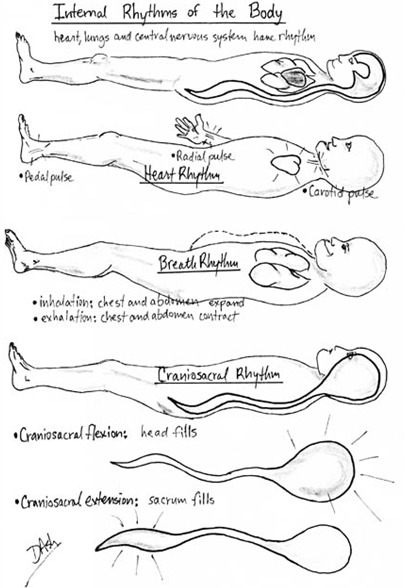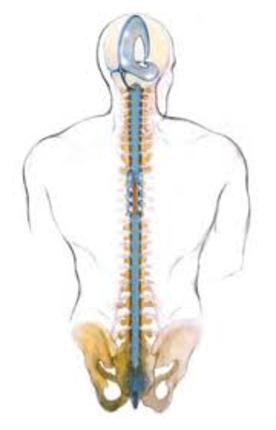
CranioSacral System (CSS) consists of the membranes that cover and protect the brain and spinal cord. These membranes contain Cerebrospinal Fluid which is responsible for nourishing our Central Nervous System. The Craniosacral System has a rhythm all on its own; just like the Cardiovascular and Respiratory Systems of the body. These rhythms can be felt throughout the body. As facilitators, we listen to this rhythm and use it to evaluate restrictions within the CranioSacral System. Take a moment to think about what happens when there is tension or blockage in our heart or lungs; the system is then compromised and struggles to do its job – every day tasks are affected. It is the same for the CranioSacral System, if there is tension or blockage it has the potential to create dysfunction anywhere in the body.

CranioSacral Therapy is a gentle, manual therapy during which we listen to the CranioSacral Rhythm and use this to evaluate the system and the body for restrictions. These restrictions can be either physical, energetic, or emotional in nature and can occur anywhere in the body. They can stem from a slip or fall, motor vehicle accidents, surgery, everyday injury, or emotional trauma from life events. We then use gentle placement of the hands to facilitate the release of identified restrictions. The CranioSacral System function improves: enhancing mobility, relieving pain, and restoring function thereby, improving or even eliminating any number of symptoms that include but not limited to;
The CranioSacral System does after all protect and feed your Central Nervous System, which controls everything! By facilitating the body in the release of restrictions within the CranioSacral System, the Central Nervous System functioning will be improved as will our health and well-being.
Headaches/Migraines
Fibromyalgia
Joint Pain and Swelling
Neck and Back Pain
Sciatica
Fascial Restrictions
Post-Concussion Syndrome
Sinusitis
Dental work pain
Chronic Pain and Arthritis
Depression and Anxiety
Surgical Recover
Temporal Mandibular Joint Dysfunction (TMJ)